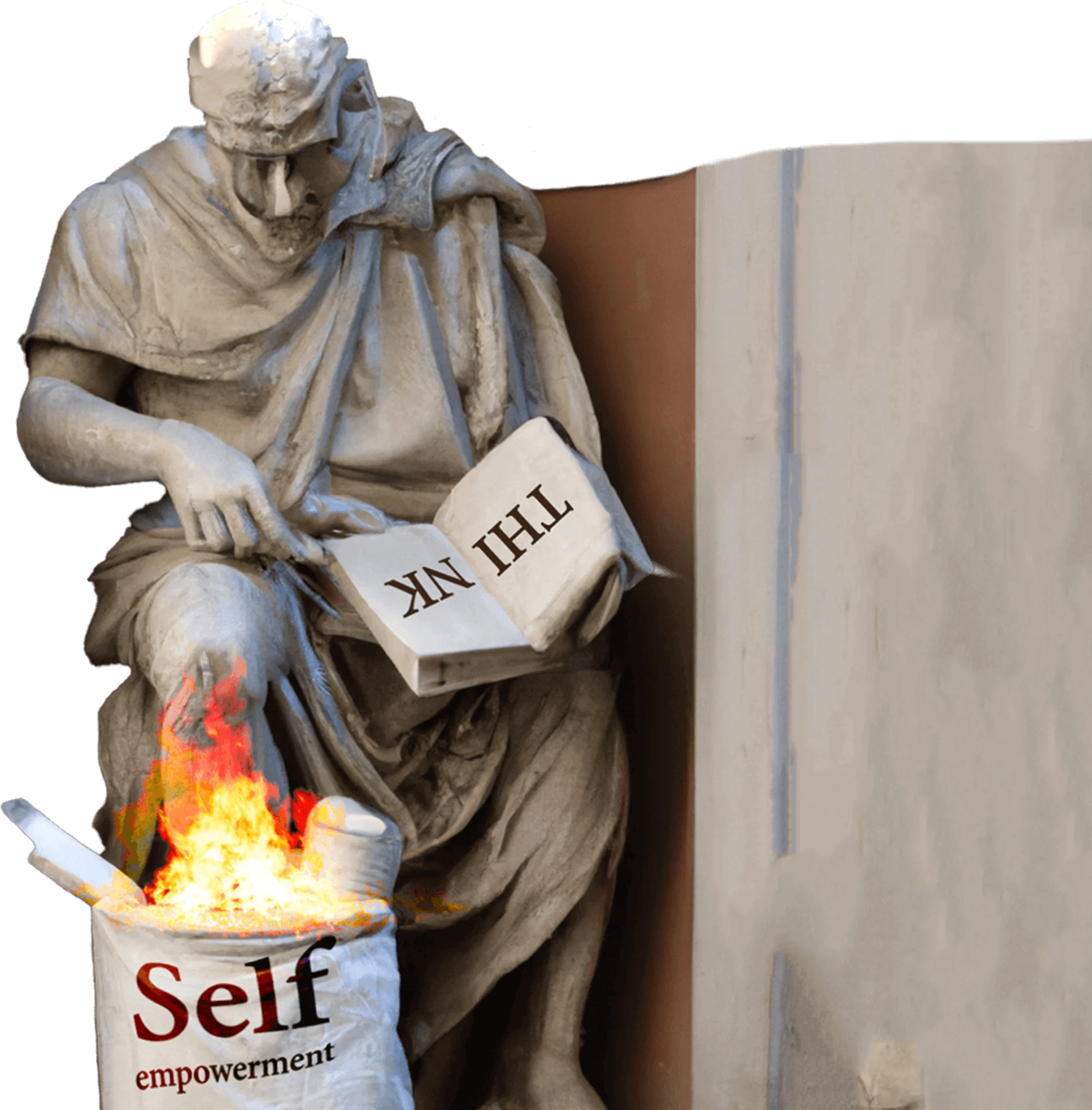Back in the 1970s, the Swedish vacuum maker Electrolux expanded into the US market with the slogan - Nothing sucks like an Electrolux. Even though it was grammatically correct and pointed towards the efficiency of its vacuum cleaners, the saying didn’t fly with the American audience, and how could it? The literal meaning was swept under the rug of slang, the prevalent form of communication.
Failure of communication, I realised, starts with our inability to understand others, which is the result of our gross inability to hold alternate perspectives.
Closer home, one innocent word that can start a war is ‘Bhaiya’. It translates to ‘elder brother’, historically used as a sign of respect. Indians use Bhaiya as a suffix to address elder brothers and their friends but also in one-off social interactions with, say, the carpenter, security guard or the rickshaw-wallah - basically, any stranger. Only when I moved to Mumbai seven years ago did I realise that one can badly offend rickshaw-wallahs if one addresses them as Bhaiya. Why? Because it has now morphed into a derogatory word for a class of migrant labourers from select central states. I had once called out to a rickshaw driver in all my innocence- “Bhaiya, will you go to Bandra?” and a high decibel noise hit me back - “Bhaiya kisko bola, haan?” (Who do you think you called Bhaiya, huh?)
I chose not to engage with him and let him process his reaction, which was clearly towards a deep-rooted trigger point. I learned an important lesson that day: all it takes to diffuse a situation is for one side to understand the other’s perspective in the heat of the moment.
Now, what about communication and perspective-taking in relationships that last longer than a conversation on the street?
It would not be an exaggeration to say that most relationships are laced with telephone-game-equivalent conversations where the mind wants to say something, the deployed words mean something else, and the final message is as distorted as a badly auto-tuned cringe pop song.
How can one interpret what ‘hmmm’ means in a text message? Is it agreement, disagreement, no comments, thinking mode, none of the above, or all of the above?
Imagine a conversation between a husband and a wife where the wife, on returning home after a long day at work, is received by her husband at the door with - “You got home late today?”
He wanted to confess that he missed her and was waiting to share with her his workplace stories, but who speaks directly in such an articulate world anyway?
Blamed and shamed, the wife retorts with- “You have no idea how much pressure I am under!” when she just wanted to declare how tired she was.
Both essentially wanted to hug each other, but because of this inability, rather a blatant refusal to hold each other’s perspective, it ended up being an argument with a common theme - you don’t understand.
The above example is not a work of fiction. I know a couple just like this.
I know many couples (and not just romantic partners; there are friends, siblings, parent-child, neighbours, you name it!) who indulge in such twisted conversations, and if it resembles any persons, living or dead, whom you know, it will not be co-incidental. This turn of events transcends generational and even geographical boundaries simply because, somehow, it has become difficult for us to express ourselves the way we want to.
According to a survey by the American Academy of Matrimonial Lawyers (AAML), 67.5% of marriages fail because of a communication breakdown, which is not surprising, given how terrible we are at understanding each other.
This is why I find the phrase ‘You don’t understand’ quite amusing, almost paradoxical. It’s like two people in a conversation keep screaming ‘You don’t understand’ to each other without pausing to bridge the gap between ‘You’ and ‘I’; to see what it is that ‘I don’t understand’ about what the other is saying which may, in all possibility, change what they were trying to say in the first place.
The fact is that it’s not the ‘what’ but the ‘where they’re coming from’ (or what’s their perspective on the matter) that we have trouble understanding, which becomes the root cause of miscommunication.
More often than not, the human tendency to put self-first results in disastrous social interactions. Stretch it enough; it becomes an intolerable pattern of narcissistic behaviour.
For instance, my Outlook Calendar became a witness to just how far our inability to take alternate perspectives has gone after it started failing miserably at the one job it has - managing schedules. There have been times when I had three overlapping invites for the same helpless thirty-minute slot. I could almost hear the voice of the new meeting host- “I do see that your Calendar is red, but you don’t understand; my agenda is way more important!” Initially, I tried to imitate Hermoine Granger (without her time-turner) to be in multiple meetings simultaneously by using the fancy ‘hold’ option, but it turns out it is not as fancy as it sounds. The only thing I got in return was a sense of pseudo-productivity, ultimately leading to burnout. Eventually, I had to be okay with declining the double bookings, but I realised it was not enough. To stop it from becoming a plaguing pattern, I started adding comments for the over-eager people to ensure my perspective was also appreciated; while declining their invites or requesting a reschedule.
The bitter truth is that the more learned a society becomes, the fewer words are put to use as originally intended - to communicate. It’s become a one-way street to further one’s agenda, with the pathway of listening indefinitely blocked.
Yes, large-scale problems have arisen due to no or improper communication. But the unfortunate reality is that too much communication without actually intending to communicate has emerged as the winner of the ruin-the-peace contest. More dangerously so, when too much communication happens without holding others’ perspectives and turns what could have been an amicable social interaction into a volcano-erupting, earth-shattering level of argument. Just look at the Parliament sessions across the world. Leaders have repeatedly proven that the ‘we’ in ‘This is how we do it’ really alters the way we take alternate perspectives and hold a comprehensible communication.
To make it worse, technology has not helped in this regard. Peculiar ways to communicate have knocked on our doors, and so have newer ways to confuse effectively. How can one interpret what ‘hmmm’ means in a text message? Is it agreement, disagreement, no comments, thinking mode, none of the above, or all of the above? What about the journey from Okay through Ok to K? For one, using K can be a time-saving endeavour, and for another, it can be used to convey how fumingly angry they are.
To decode these new-age mysteries, we need to know more about the human using the technology than the technology itself. The fact is that each person has had a unique life experience and hence, a unique perspective. Even a set of identical twins would have slightly, if not vastly, different life trajectories based on their individuality. Then how can we expect different people in a team or social circle, however homogeneous they seem to be, to behave in the same way?
This is where human interactions become interesting. Our perceptions have to match; our realities do not. Our perspective-taking ability gets developed over hundreds of millions of seconds of learning and evolving, and it allows us to expand our thinking as well as our sense of ‘we’, but not at the expense of our core beliefs, thus beautifully taking care of the age-old debate of identity vs conformity. This has made me see ‘Be the bigger person’ in a completely different light.
Oh, I have now graduated to addressing rickshaw-wallahs as ‘Chacha’ (Uncle). Life doesn’t suck anymore.
Written by
Megha DasA full-time polyglot and a part-time performance poet who loves to anthropomorphize. A Mumbai-based wanderer, often found wondering about the random interconnections between everything and everyone - sometimes while trekking in the Himalayas.
Read next
Where did all my friends go?

Maite Oxford
What happened when I ditched self-empowerment and embraced critical thinking

Maite Oxford
Learn to love modern architecture: it's not as bad as you think

Adam Ross
Weekly emails
Get more from Megha
The Fledger was born out of a deep-seated belief in the power of young voices. Get relevant views on topics you care about direct to your inbox each week.
Write at The Fledger
Disagree with Megha?
Have an article in mind? The Fledger is open to voices from all backgrounds. Get in touch and give your words flight.
Write the Contrast

